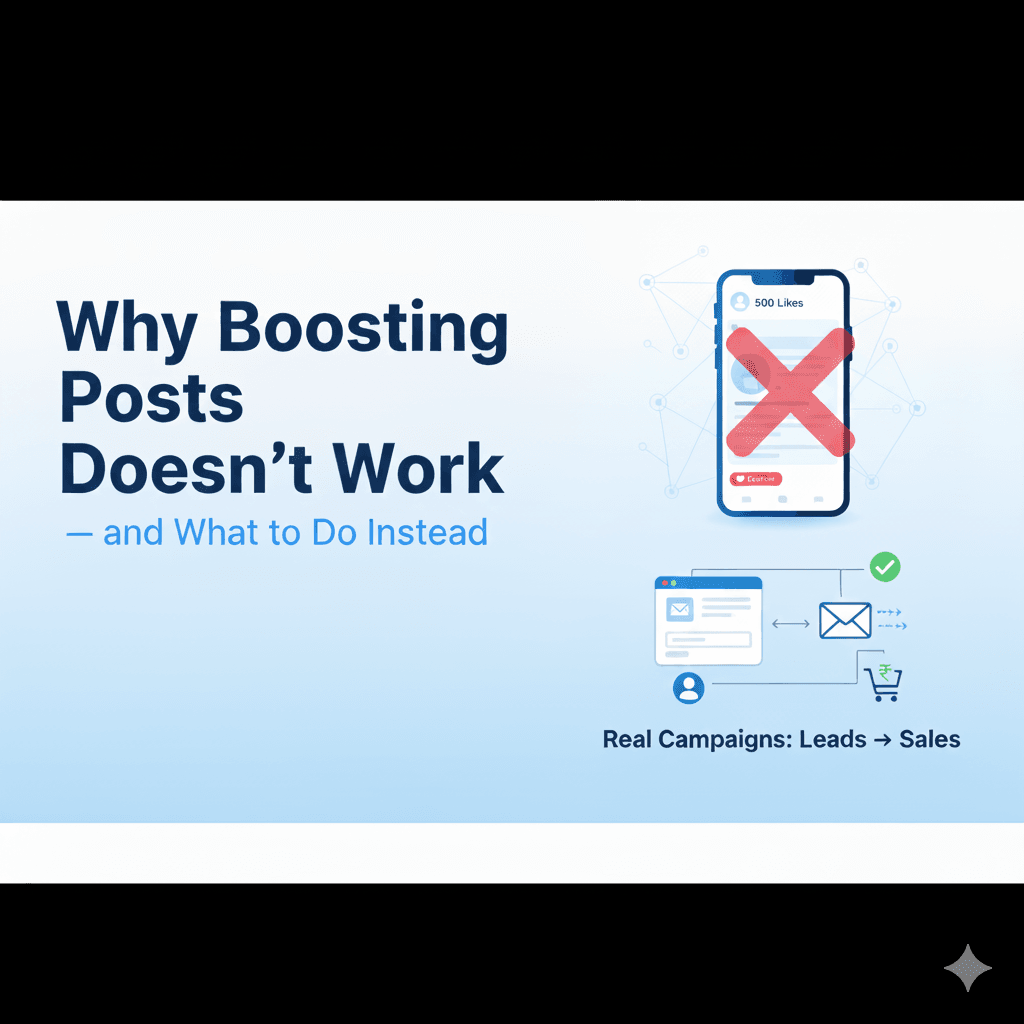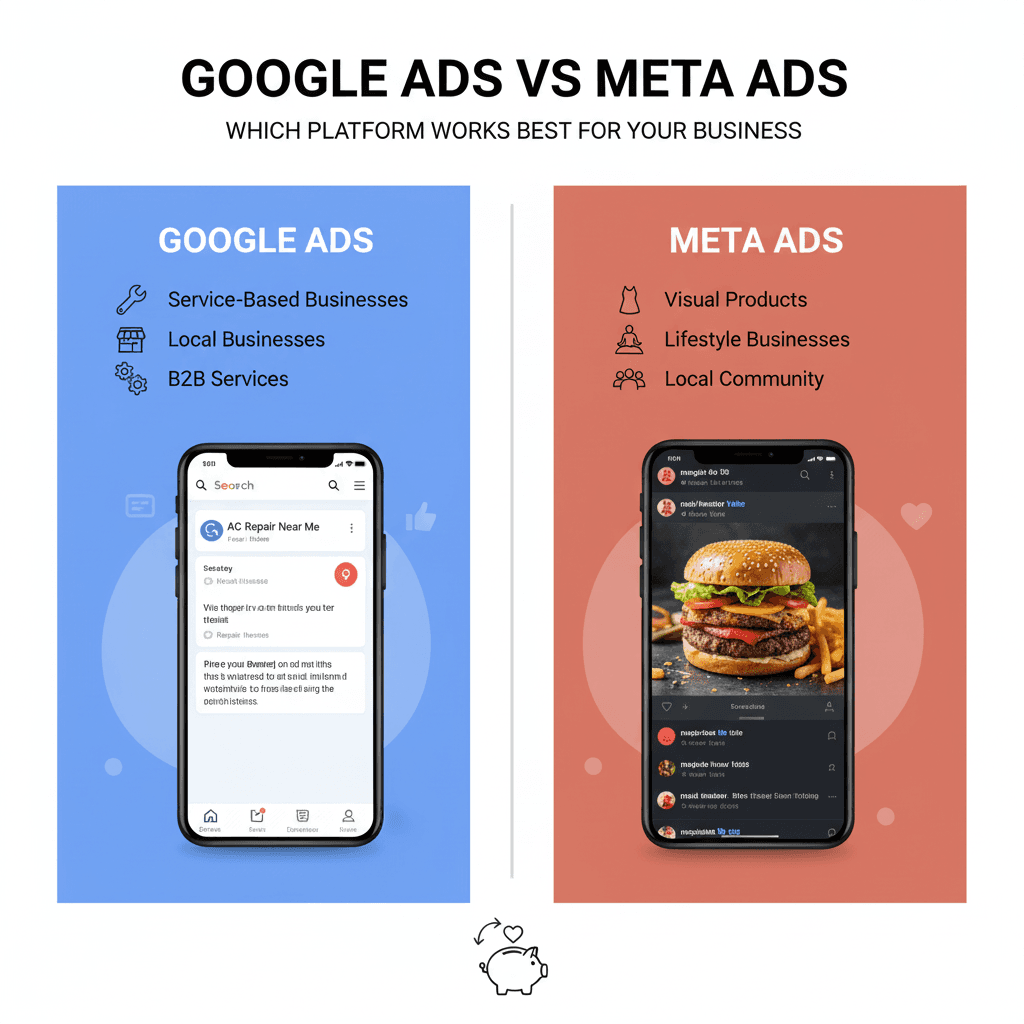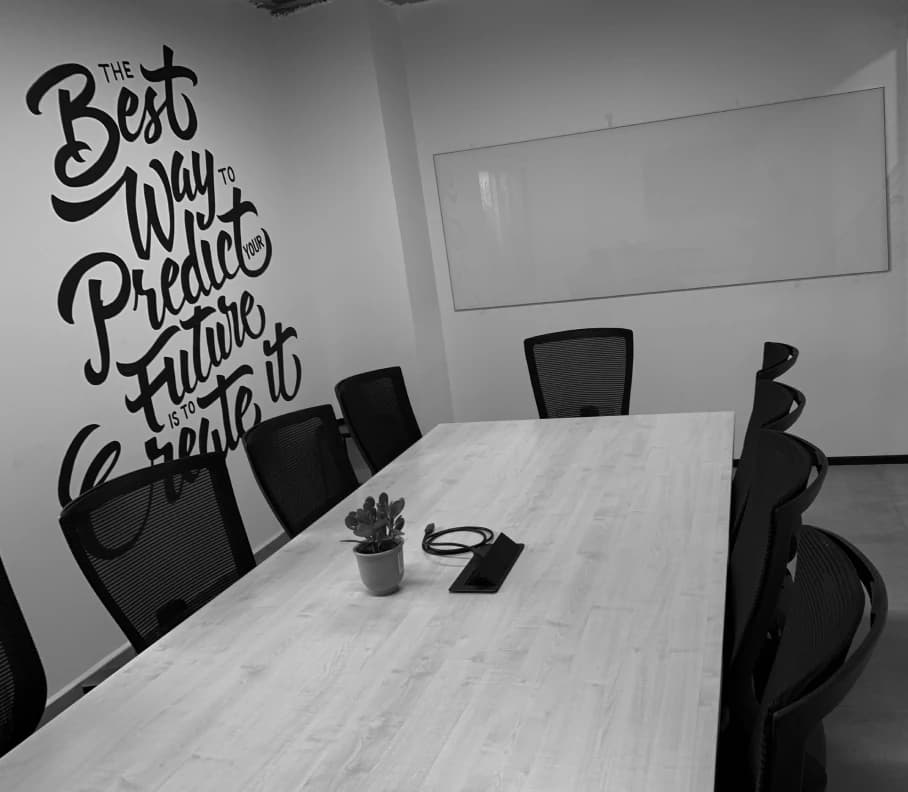
Why Boosting Posts Doesn’t Work — and What to Do Instead
Boosting only gets likes. Structured campaigns use landing pages and retargeting to build predictable customer acquisition systems that drive sales.
Fri Sep 26 2025
·3 min read

I get this question almost daily: "Should I put my money into Google Ads or Facebook and Instagram?" The truth is, it's not really about which one is "better" – it's about which one fits your business right now.
Let me tell you what I've learned after managing campaigns for hundreds of businesses. Both platforms can make you money, but they work in completely different ways.
Here's the thing most people miss – Google and Meta serve people at different moments.
Google catches people when they're actively hunting for something. Someone types "best restaurant near me" because they're hungry right now. That's money in the bank if you know how to catch them.
Meta (Facebook and Instagram) catches people when they're just hanging out, scrolling through their feeds. They're not shopping – they're just passing time. But that doesn't mean they won't buy from you.
Marketing consulting companies have figured out that understanding this difference is everything. You approach these platforms totally differently.
Google shines when people have urgent problems or clear needs. I've seen this work incredibly well for certain types of businesses.
Performance marketing agency teams love Google for these businesses because the intent is crystal clear. Someone searching for your service wants your service.
Meta works differently. It's about catching attention and creating interest where none existed before.
Visual Products: Anything that looks good in photos or videos does well on Meta. Fashion, food, home decor, travel – these industries crush it on Instagram and Facebook because people discover things they didn't even know they wanted.
Lifestyle and Aspirational Businesses: Fitness coaches, lifestyle brands, experience-based services – these work because Meta lets you tell stories and build emotional connections.
Local Community Businesses: Event planners, local shops, community services often do better on Meta because you're building relationships with people in your area over time.
Marketing consulting agency professionals often recommend Meta for businesses that need to educate their market or build desire before people are ready to buy.
Let's be honest about costs because this matters to every business owner.
Google typically costs more per click, but those clicks are often worth more. You might pay ₹30 for a click on Google vs ₹8 on Meta, but that Google click might be 5 times more likely to buy.
Meta usually gives you cheaper traffic, but you need more of it to get the same results. The upside? You can reach way more people for the same budget.
Performance marketing agency Kerala teams often recommend starting with Meta if budget is tight, then adding Google once you're making consistent profits.
Real Estate: Google wins hands down. When someone's ready to buy or rent, they search. I've never seen a real estate agent succeed by relying only on social media ads.
Fashion and Beauty: Meta all the way. These are impulse purchases driven by how things look and feel. Instagram was basically made for this.
Professional Services: Google first, Meta second. Lawyers, accountants, consultants – people search for these when they need them.
Restaurants and Food: Both work, but differently. Google catches "food near me" searches. Meta builds your brand and showcases your dishes.
Education and Training: Depends on the type. Professional courses and certifications do better on Google. Hobby courses and lifestyle education often work better on Meta.
Top digital marketing companies usually run both, but they know which one to prioritize based on the business type.
Here's what I've learned works best for most businesses: Don't pick sides. Use both, but use them smart.
Start with Google to catch people who are already looking for you. Use that money to fund Meta campaigns that build awareness and bring in new audiences.
Best digital marketing company strategies often involve this one-two punch. Google captures existing demand. Meta creates new demand.
Ask yourself these questions:
Do people actively search for what you sell? If yes, start with Google. Is your product or service something people need to see to want? If yes, Meta might be better. Do you solve urgent problems? Google. Do you sell lifestyle or aspirational products? Meta. Are you B2B? Probably Google first. Are you B2C with visual appeal? Probably Meta first.
Marketing consultants often recommend testing both with small budgets to see what works for your specific business. Every market is different.
Stop looking for the "perfect" platform. There isn't one. There's only the platform that works best for your specific business at your specific stage.
If you're just starting out and money's tight, pick one and get good at it. If you've got some success and want to grow, test the other platform with a small budget.
The businesses that win big usually use both platforms, but they use them strategically based on how their customers actually behave and make buying decisions.
Remember – platforms are just tools. The magic happens when you understand your customers well enough to meet them where they already are, with the right message at the right time.
